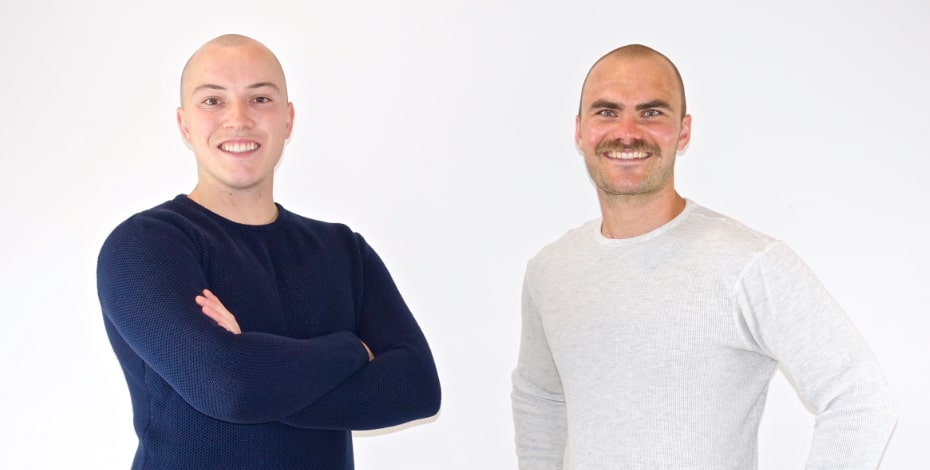
Doing men’s health through telehealth

ONLINE HEALTH: University buddies Travis Monk and Eric Lecke have developed a video-based physiotherapy service specifically for men with prostate cancer-related issues.
Throughout their university education, and after both completing their Doctor of Physiotherapy at the University of Melbourne, Travis Monk and Eric Lecke sought extra courses on male pelvic health through the University of Southern California so they could turn their focus to specifically treating men’s health-related issues.
During this time, they recognised a need to provide specialised services for men who are experiencing ongoing difficulties due to prostate cancer diagnoses.
Travis says he and Eric, along with a few other classmates, were also involved in a men’s health group, for two semesters across two years, during their postgraduate program. The group conducted research into men’s health in the form of a health- needs analysis during one semester, followed by a health intervention during another.
‘We really began to understand the literature within men’s health and it became a lot more interesting for us, and maybe an area that’s not pursued as much within the profession,’ Travis says. ‘We also developed an understanding of their behaviours with help-seeking, realising the need for men’s health physiotherapists, particularly for men with prostate cancer.’
Online Prostate Physiotherapy is an innovative telehealth service that aims to provide professional guidance for men affected by prostate cancer, and promote resilience and ownership of health through intensive physiotherapy treatments. Launched in October last year, the service operates entirely online through video consultations, utilising Physitrack to upload exercise videos, administer outcome measures, and send follow-up messages to patients.
Travis says ‘we create the patient’s profile and send them a program via PhysiApp; so they would download the app, and they’d be able to see what exercises and exact prescription they need to do. It can also just act as like a daily reminder, and daily tick-off, so we can benchmark them and say “oh well, they’ve missed this day, but they’ve done the other four days”. So, we are assessing adherence to their program.’
Still in its infancy, and focusing solely on positive health outcomes for men affected by prostate cancer, there is the challenge of acquiring patients and how to find those who need this type of care. Travis says ‘our biggest challenge at the moment is trying to sell our service, and particularly to specialists such as urologists, who are quite time-poor and overworked sometimes. It is about selling the benefits of our service, to help the patient the urologist is treating, to ultimately get the best health outcomes. A lot of our ideal patients are seeing urologists day in and day out; so our work has been connecting and networking with them so that they understand the benefits of our service,’ he says.
There is a particular emphasis on reaching men who don’t have great access to physiotherapy, for example, those in rural and remote areas. Travis says men in rural areas ‘don’t have great access to physiotherapy in general, or they could be seeing a physiotherapist who doesn’t have updated knowledge or a particular interest in prostate cancer-related issues.’
It is important for Travis and Eric to provide a safe space for men to talk about their symptoms and concerns, and video consultations from the comfort of the patient’s home is an added value of the service. ‘We’ve sort of hit a perfect niche where these men don’t really need hands- on physiotherapy per se; so a lot of what they can do can be done remotely via a video consultation,’ he says.
‘Given that it’s [prostate cancer] quite prevalent in society, and it’s only growing, the survival outcomes for men are quite good,’ Travis says. ‘Men’s health is an exciting field within the physiotherapy profession, and that’s only going to become clearer as it becomes more acknowledged and understood.’
© Copyright 2024 by Australian Physiotherapy Association. All rights reserved.





